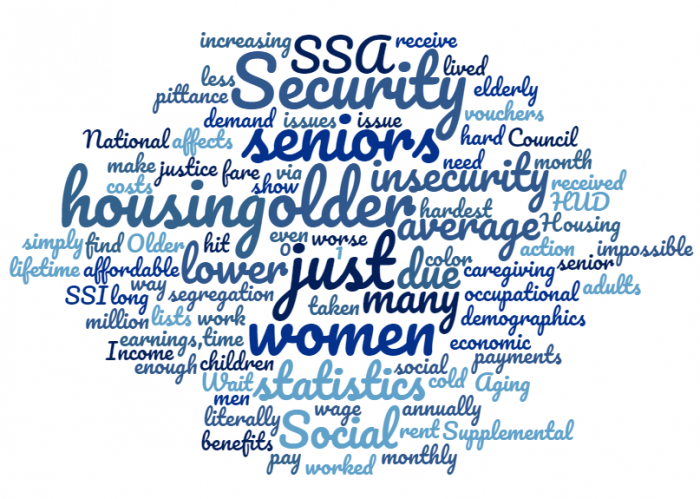Opinion: Seniors and Housing Insecurity
February 1, 2020
I ran across a story on Facebook this afternoon that I find very troubling on a very personal level: Homelessness Among the Elderly Expected to Triple in 10 Years .

The number of elderly individuals experiencing homelessness is rising. In the Annual Homeless Assessment Report, released by HUD, the number of elderly individuals experiencing sheltered homelessness nearly doubled from 4.1 percent in 2007 to 8 percent in 2017. It’s not slowing down, either. This population is expected to triple over the next decade.
A new study out of UCSF showed that almost half of all elderly homeless people became homeless after age 50. These statistics tells us that whatever the problem is, it’s related to age. The question we need to ask ourselves is, why are the elderly falling through the cracks?
I don’t say much here about my tenuous circumstances, but here goes… I took my Social Security early when I finished my Master’s in English last May because I was worried about finding a job. That worry was valid, I’m still not working.
I’m living on money I stashed away while in school (student loans) and my monthly SS payment, which is half my rent. Having already been homeless for 5 months a year and half ago, I really feel the angst that elderly people are feeling.
A recent opinion post on The Hill noted “A 2019 Harvard Housing Report” that shows that “the shortage of affordable housing remains acute, especially for lowest-income households.’ Furthermore, “the National Low Income Housing Coalition found that a renter working 40 hours a week and earning minimum wage can’t afford a two-bedroom apartment (i.e., not be cost-burdened) anywhere in the nation.”
There is not enough affordable housing for the elderly and so many lived on a pittance of monthly Social Security payments that simply make it impossible to pay their rent due to the increasing costs of housing. Wait lists for senior housing and or HUD vouchers are all very long. Here’s some statistics via the National Council on Aging:
- The 2.1 million older adults on Supplemental Security Income (SSI) receive, on average, just just $435 each month. (SSA, 2016)
- On average, older women received about $4,500 less annually in Social Security benefits in 2014 than older men due to lower lifetime earnings, time taken off for caregiving, occupational segregation into lower wage work, and other issues. Older women of color fare even worse. (SSA, 2015)
The above statistics show that women are the hardest hit by economic insecurity as seniors. So many seniors have worked hard only to find themselves out in the cold, literally and it just shouldn’t be this way. Housing insecurity is a social justice issue that we all need to demand action on. It affects all demographics, from seniors to children.






